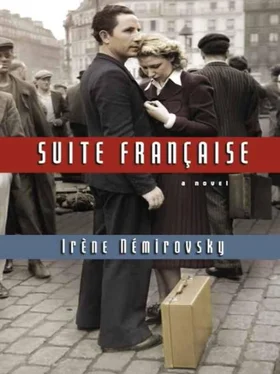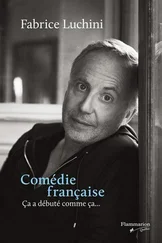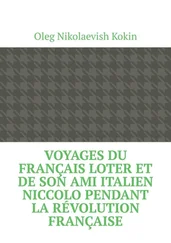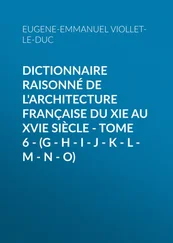He felt simultaneously comforted and bitter at being so different from other people. He looked out at them with his pale eyes. The wave of cars was still moving and all the anxious, sombre faces were the same. What a sad breed! What were they thinking about? What they would eat, what they would drink? He was thinking about the cathedral in Rouen, the châteaux of the Loire, the Louvre. A single one of those venerable stones was worth more than a thousand human lives. He was approaching Gien. A black spot appeared in the sky. In a flash he realised that the stream of refugees near the level crossing would be a sitting target for an enemy plane so he pulled off on to a side road. Fifteen minutes later, there was a crash only a few metres away from him. Other cars also trying to avoid the main road collided with each other when a terrified driver took a wrong turn. They rebounded off each other into the fields, shedding luggage, mattresses, birdcages, injured women. Charlie heard confused sounds but didn't turn round. He headed at full speed towards a thick wood. There he stopped his car, waited a moment, then set off again through the countryside. The main highway was clearly becoming too dangerous.
He stopped thinking about the dangers the Rouen cathedral might face for a moment to imagine very precisely what was threatening him, Charles Langelet. He didn't want to dwell on it, but the most unpleasant images filled his mind. His large, delicate, slim hands clenched the steering wheel, trembling slightly. There were few cars and houses where he was, and he had no idea were he was going. He had always had a bad sense of direction. He wasn't used to travelling without a chauffeur. For a while he got lost in the outskirts of Gien, becoming ever more agitated for fear he might run out of petrol. He sighed and shook his head. He had predicted what would happen: he, Charles Langelet, was not made for this uncouth existence. The thousand little pitfalls of daily life were too much for him. The car stopped: out of petrol. He made a small gracious gesture to himself, as one bows before the inevitable. There was nothing to be done, he would have to spend the night in the woods.
"You wouldn't possibly have a can of petrol you could let me have?" he asked a passing driver.
The man said no and Charlie smiled, depressed and bitter. "Well, that's the human race for you! Egotistical and mean. In times of misfortune, no one will share with his brother, not a crust of bread, not a bottle of beer, not a pathetic little can of petrol."
The driver turned round and shouted at him, "There's some about ten kilometres from here, in…"
The name of the hamlet was lost as he drove off but Charlie had already started to walk towards the trees. He thought he could make out one or two houses.
"But what about the car? I can't leave the car!" Charlie said to himself in despair. "Let's try to start it again." Nothing happened. He was covered with dust as thick as chalk.
A car was slowly making its way towards him. It was jammed with young people, some even clinging to the running board and the roof, like flies. They seemed drunk. "What a bunch of louts," Langelet thought, shuddering. Nevertheless, he spoke to them in his most pleasant voice. "You gentlemen wouldn't happen to have a drop of petrol? I'm stuck."
They stopped with a horrible screeching of overworked brakes, looked at Charlie and sniggered. "What's it worth?" one of them finally said.
Charlie knew very well he should have replied, "However much you want!" but he was mean and, moreover, he was afraid these tramps would be tempted to rob him if they thought he was too rich. Truth be told, he was terrified of being duped. "I'd pay a reasonable price," he replied haughtily.
"There ain't none," said the driver of the jerky, creaking car, and drove off along the sandy road through the forest while Langelet, beside himself, waved his arms about and shouted at him.
"Wait a minute, wait! Stop! At least tell me how much you want!"
They didn't even reply. He was alone. But not for long, for night was falling and refugees were gradually coming into the forest. They hadn't been able to find rooms in a hotel; even the private houses were completely full, so they had decided to spend the night in the woods. Soon it was just like a July campsite in Elisabethville, Langelet thought, feeling sick to his stomach. Children were squealing, the mossy ground was littered with discarded newspaper, dirty clothes and empty tins of food. Some of the women were crying, others were shouting or laughing. Horrible filthy children came up to Charles, who chased them away by rolling his eyes at them angrily but without raising his voice, for he didn't want any trouble from their parents. "They're the dregs of the dregs, from Belleville," he mumbled, horrified. "How did I end up here?" Had chance brought him together with the inhabitants of one of the worst neighbourhoods in Paris, or had Charlie's vivid, anxious imagination got the better of him? All the men looked like bandits, the women like con artists.
Soon it was completely dark, and beneath the thick trees, the translucent shadows of a June night were transformed into black shade interspersed with silver glades, drenched in moonlight. Every sound echoed, distinct and sinister: the planes flying across the sky, the night birds, the distant explosions-either gunfire or tyres bursting, you couldn't be sure. Once or twice a prowler stared at Charles maliciously. He heard things that made him shudder. People weren't thinking straight… They kept talking about rich people who'd run away to save their skins and their money, jamming up the roads, while poor people had only their own two legs and had to walk 'til they dropped down exhausted. "Well, they're not those poor people; they've got cars," Charlie thought, outraged, "and stolen no doubt!"
He was extremely relieved when a little car pulled up next to him with a young man and woman who were clearly a better class of people than the other refugees. The young man's arm was slightly deformed; he held it in front of him ostentatiously, as if it carried a sign, in big letters, which read UNFIT FOR MILITARY SERVICE. The woman was young, pretty, and very fair. They shared some sandwiches and soon fell asleep in the front of the car, leaning against each other, cheek to cheek. Charlie tried to sleep as well, but fatigue, overexcitement, fear kept him awake. An hour later the young man in the car opened his eyes, gently disentangled himself from the young woman and lit a cigarette. He saw that Langelet was also awake.
"This is so bad!" he said quietly, leaning towards him.
"Yes, it's very bad."
"Well, the night will go by fast. I hope to make it to Beaugency tomorrow by taking the side roads because the main road down there is impossible."
"Really? And it seems there's been some heavy bombing too. Well, you're lucky," Charlie said. "I haven't got a drop of petrol left." He paused. "If I could impose on you to watch my car for a while" (he really does seem like an honest person, he thought), "I could go to the next village where I heard I could get some."
The young man shook his head. "Unfortunately, Monsieur, there's none left. I bought the last cans… and at an outrageous price." He pointed to the petrol cans tied to the back of the car. "I have just enough to get to the Loire and cross the bridges before they're blown up."
"What? They're going to blow up all the bridges?"
"That's what everyone's saying. They're going to fight along the Loire."
"So you think there's no petrol at all?"
"Oh, I'm sure of it! I would have been glad to let you have some but I only have just enough for myself. I have to get my fiancée to safety at her parents' house. They live in Bergerac. Once we've crossed the Loire, it will be easy to find petrol, I hope."
Читать дальше

![Константин Бальмонт - Константин Бальмонт и поэзия французского языка/Konstantin Balmont et la poésie de langue française [билингва ru-fr]](/books/60875/konstantin-balmont-konstantin-balmont-i-poeziya-francuzskogo-yazyka-konstantin-balmont-et-thumb.webp)










